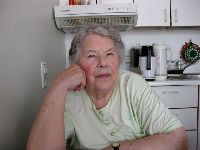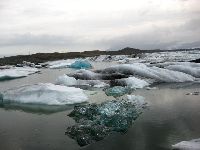Project grants 2010
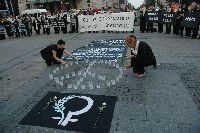 ‘Mourning and grief in the belly of Europe – a documentation of encounters with artists of compassion: the wailing women in the western Balkans’
‘Mourning and grief in the belly of Europe – a documentation of encounters with artists of compassion: the wailing women in the western Balkans’
Applicant: Ulrike Reimann, Bremen
Type of project: Research/publication
Funding: Euro 4,000
The journey to meet the traditional wailing women in the western Balkans (Serbia, Croatia, Bosnia, Montenegro) was a search for clues of expressions (and suppressions) of traditional emotional culture in a region battered by war. Can compassion and mourning in our time still contribute to reconciliation efforts? The research project aimed at documenting the historic and contemporary mourning tradition as a significant tradition of women. It is a tradition revived by several anti-war and anti-displacement groups such as the ‘Women in Black’ of Belgrade.
Intercultural pedagogue Ulrike Reimann and sociologist Marijana Gršak have been researching the life of women in the successor states of Yugoslavia since 2002. Both work as freelance trainers and consultants in remembrance work and mourning culture. They are editors of the anthology Frauen und Frauenorganisationen im Widerstand in Kroatien, Bosnien und Serbien.
Their project was implemented in cooperation with Staša Zajović, coordinator of the peace group ‘Women in Black’ from Belgrade, Serbia.
Applicant: Heike Fink, Wuppertal
Type of project: Documentary film
Funding: Euro 4,000
After the Second World War, 238 young German women packed their belongings and emigrated to Iceland in response to an advert published by Iceland’s farmers’ association. What were their personal reasons for trading life in post-war Germany for the isolation of the volcanic island? Eisheimat portrays these women who are in their eighties now and who, having led lives full of privation on the rough Atlantic island, found a new home there. ‘The presence of these “icelandicized” women who emigrated from Germany presents questions of being and becoming, of belonging, and of the role of individual and community in a very unusual way.’
Heike Fink works as editor, film script writer and lecturer of dramaturgy and script writing. Eisheimat is her first documentary film project.
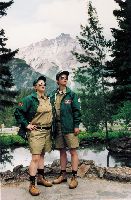 ‘Kunst- und Theorieprojekte’ (Artistic practice and theory)
‘Kunst- und Theorieprojekte’ (Artistic practice and theory)
Applicant: Alexandra Duwe, Frankfurt am Main
Type of project: Exhibition/performance
Funding: Euro 2,000
The exhibition project Kunst- und Theorieprojekte focus on the tension between theory and practice in art. ‘Will art be capable of expanding its theoretical basis in such a way as to be able to explore topics from humanities and social sciences, in order to call attention to social issues? Or will it loose its particular strength of presenting aesthetic substantiations and exaggerations in the process?’
The artists Shawna Dempsey and Lorri Millan from Winnipeg, Canada, use film, video and performance to tackle feminist and philosophical issues. They presented a first video exhibit in September 2009 on board of the Atelierschiff der Stadt Frankfurt (studio boat) on the River Main. Alexandra Duwe will invite both artists to Frankfurt, where they want to research the operation of social conventions in a one-week performance.
The curator of the exhibition, Alexandra Duwe, and Holger Wüst successfully promoted artists with the Ausstellungsraum Goethestraße 78 project in Offenbach am Main. The Kunst- und Theorieprojekte, which include further exhibitions and a theoretical event curated and organized by Duwe, will also develop in cooperation with Wüst.
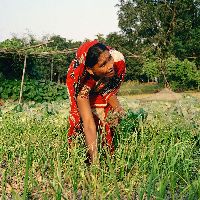 ‘Nayakrishi Andolon – smallholder women farmers in Bangladesh’
‘Nayakrishi Andolon – smallholder women farmers in Bangladesh’
Applicant: Katharina Mouratidi, Berlin
Type of project: Photo/text exhibition
Funding: Euro 2,000
Nayakrishi Andolon, Bangladesh’s new farming movement, is predominately borne by women. The movement involves approximately 65.000 families who aim at producing healthy food regionally through organic and sustained farming and without the use of chemicals. The exhibition aims at documenting this groundbreaking project and presenting ‘an approach to solving the food crisis in developing countries and emerging markets from a little-known female perspective’.
The exhibition project is part of the cycle Gelebte Alternativen – Wege in eine nachhaltige, global gerechte Zukunft (Real-life alternatives – ways to a sustained, global and just future), which presents six cities, villages, communities and networks from all over the world and their approaches to sustained economic management.
Berlin-based photographer Katharina Mouratidi was born in 1971. In her work, she focuses on social and political themes and movements. Her photographs and texts are exhibited and published the world over. Her book Venceremos – Die andere Globalisierung was published by Edition Braus, Heidelberg, in 2006.
‘Ein Probenagel gratis’ (One trial nail for free!)
Applicant: Kathi Liers, Berlin
Type of project: Documentary film
Funding: Euro 4,000
This film is set in a nail parlour right in the heart of Berlin’s district of Marzahn – a district battered by economic and cultural stagnation. The parlour’s employees and customers are the film’s protagonists, who prove very inventive in their day-to-day struggle for survival. ‘This film presents an inside view of a microcosm which is based on exceptional levels of solidarity. It is brimming with real-life credibility, engaging emotionality, authentic humour and confidence, and turns the women in the nail parlour into heroines of our times.’ The viewers can recognize something of themselves in these women while discovering new strengths and encouraging aspects.
Berlin-based actress and film director Kathi Liers already explored the life of women struggling for survival in difficult and even threatening work environments in her documentary Die Vier von der Quelle (2007), which was repeatedly screened on television and at film festivals.
‘A.R.T. (Artificial Reproduction Technology)’
Applicant: Ditte Maria Bjerg, Denmark
Type of project: Stage performance/video project
Funding: Euro 2,000
What does it mean for all parties involved when the economic concept of ‘outsourcing’ is applied to carrying babies to term? This performance lecture about the booming surrogate mother market in India presents the search for personal fulfilment of western mothers and the struggle for survival of Indian surrogate mothers as a tightrope act. The performance comprises a video portrait of an Indian surrogate mother to which two stage actors read texts by American sociologist Arlie Hochschild. The project premiered at the anniversary congress commemorating the centenary of the Deutsche Gesellschaft für Soziologie (German Sociological Association) on 10th October 20010 in Frankfurt am Main and subsequently went on a tour of Germany.
In her documentary, inventively designed stage performances and films, Danish director Ditte Bjerg focuses on political and social issues. Arlie Hochschild about Ditte Bjerg: ‘Her work is a very unusual mixture of great imagination and sophisticated social criticism.’
‘Liquid Identities’
Applicant: Veronika Witte, Berlin
Type of project: Exhibition
Funding: Euro 2,000
Liquid Identities is a contribution to the 21st-century body discourse which questions traditional body aesthetics and turns the body into an arena for performance optimization, desires and dreams of immortality. The project focuses on the effects of new medical and genetic discoveries on body aesthetics and body images of women and men. The project is implemented in co-operation with Dr. Bodo Lippl of the Institut für Sozialwissenschaften, Empirische Sozialforschung (Institute for Social Sciences and Empiric Social Research) at Humboldt University, Berlin.
The artist employs a six-page questionnaire to question visitors at exhibitions about their attitudes to their own bodies and their visions for a hypothetical body of the future. The scientific analysis is based on 1,500 questionnaires, and the drawings submitted by the participants are merged by means of a 3D-programme into four hybrid sculptures of the envisioned ideal body types. The sculptures, a video installation, an open archive of the questionnaires and a documentation of the entire project were presented at Stadtgalerie in Saarbrücken in the autumn of 2010 during the concluding installation.
Artist Veronika Witte works in the space between science, art and performance production. In 2001, she founded the fictitious opinion research institute ISF – Institut sozio-ästhetische Feldforschung Berlin for her field research. Witte graduated at the Ecôle Nationale Supérièure des Beaux-Arts in Paris where she studied installation art and sculpture. Her work was shown in many individual and group exhibitions in Germany and abroad.
![]()
